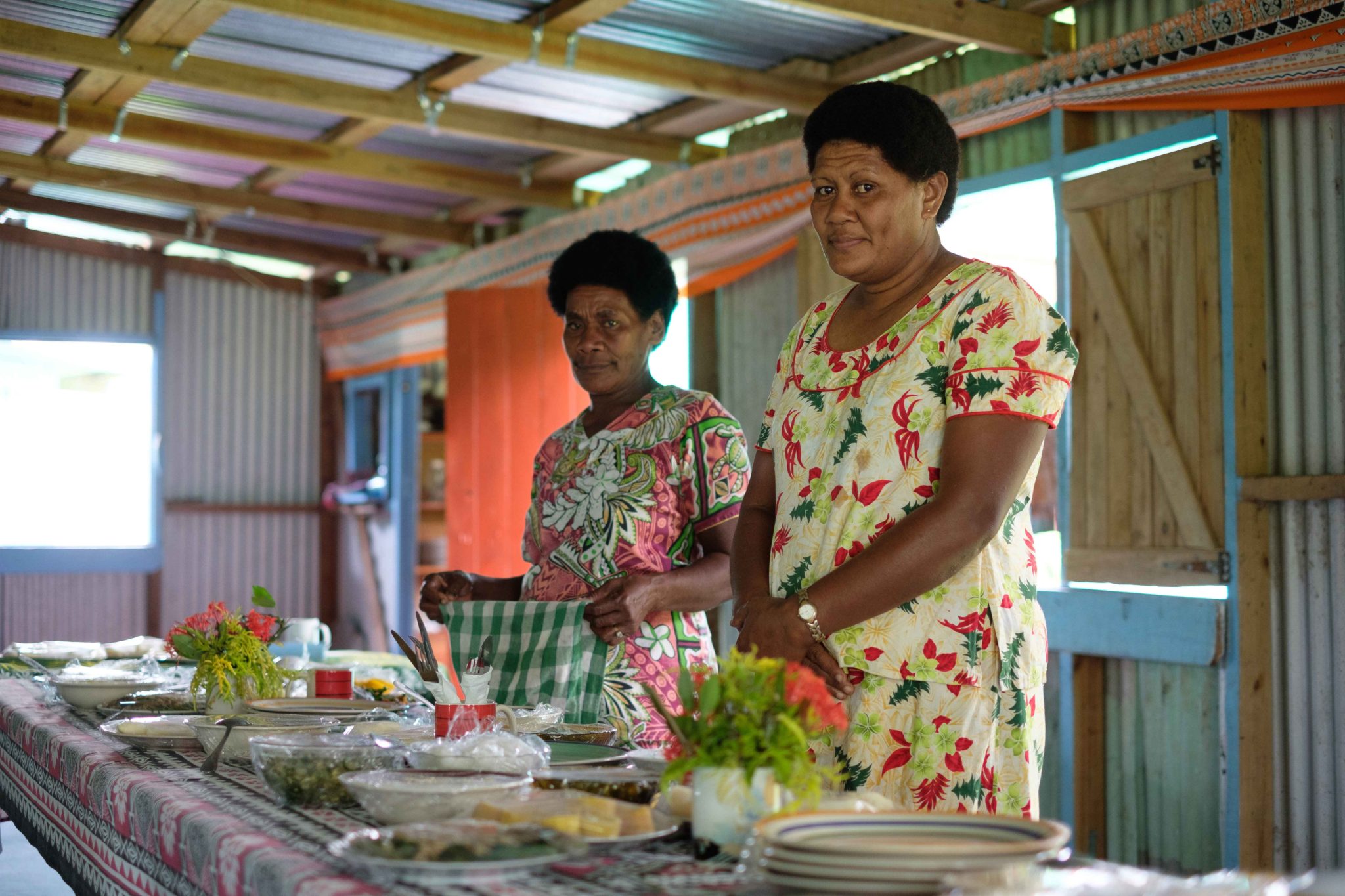
Walks & Trails (Fiji) Limited trading as Talanoa Treks was registered in 2013, a social enterprise working in partnership with four rural communities across rural Viti Levu. Talanoa Treks partners with Nabalesere, Senituatua (Nubutautau) and Vuevata (Naga) Women’s club. Women in each community earn income for the provision of various services – hosting guests, providing meals and looking after accommodation and increasingly providing guiding services.
Website: www.talanoa-treks-fiji.com
Project Date: March 2018 – August 2019
Grant Value: Type C– FJ $50,00
Area of Focus: Women in sustainable tourism
Project Status: COMPLETED
The roles and responsibilities of rural women in Fiji are often strongly gendered and influenced by traditional values that emphasise the authority of chiefs and village elders (often male) ahead of those of women, affecting their ability to voice their opinions and influence decision-making processes in their community.
The mobility and freedom (e.g. to attend functions, training, to exercise) of women in these communities – in particular married women – may also be constrained to varying degrees by their husbands and other men in the community.
The three women’s groups are all located in remote rural areas, between 2-4 hours away from the nearest urban centre and in some cases, without access to reliable or affordable transport to get produce to market, purchase goods or access medical services regularly.
Talanoa Treks partners with four communities to create and sustain revenues from the tourism industry to support community development. Each of the communities earns between FJD 10,000 – 16,000 a year in tourism income through their partnership with Talanoa Treks. Women in each community earn income for the provision of various tourism services as such hosting guests, providing meals and accommodation and increasingly providing guiding services.
The project will focus on strengthening the network of rural women involved in sustainable tourism and empower them to increase their roles and voices in the management of their community tourism enterprises.
This project provides women with:
(a) Ongoing capacity development, through mentoring and training in business and financial management;
(b) Creating safe working spaces for women through the upgrade of their tourism facilities; and
(c) Promoting health and wellness for rural women.
Most women earn some cash income from the sale of crops (dalo, yaqona, vegetables). Access to affordable transportation, income generation opportunities, and health care is limited as none of the villages are on a public transport route. In each village, the women’s group will manage the project and appoint one person as the overall coordinator of the project.
The Fiji Women’s Fund supported some of the identified needs of women in the communities, including supporting the women to manage the construction of their own kitchens that could be used for tourism purposes. The kitchens provided a safe space, that the women collectively own, to come together, to cook, but also to talanoa (chat, share stories) about issues of importance to them.

